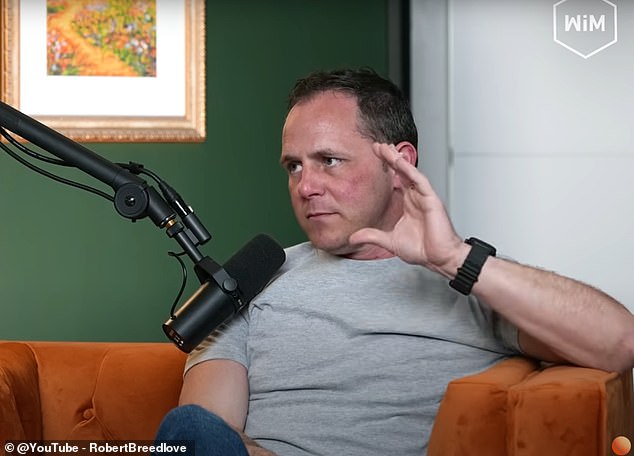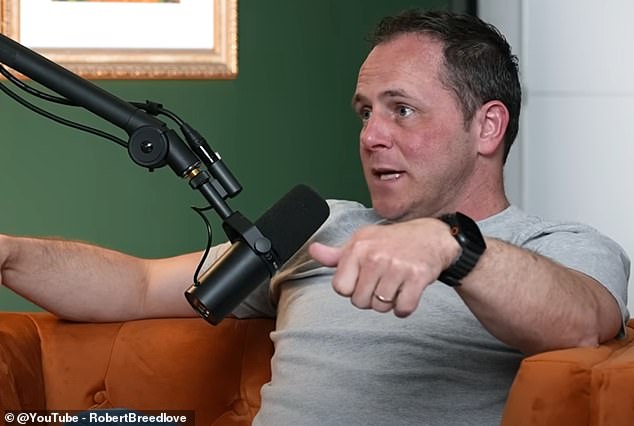A behavioural expert has revealed some questions and techniques he uses to spot whether someone is lying.
Chase Hughes, who served in the US Navy for some 20 years, is the founder and CEO of Applied Behavior Research and the author of the three-year #1 bestselling book on persuasion, influence and behavior profiling, The Ellipsis Manual. He is also a founding member of The Behavior Panel, a YouTube channel with more than one million subscribers.
He recently appeared on the Robert Breedlove podcast to discuss behavioural topics including how to read people, and how to better protect yourself from being manipulated.
Another topic he talked about is questions he uses to spot whether someone is lying.
Discussing how he would approach questioning someone he suspected of doing something, he explained that he would use a technique known as a ‘bait question’.
A bait question uses hypothetical information to elicit a cue as to whether someone is being deceptive.
As Chase explained: ‘Let’s say that you snuck three doors down to one of your neighbours’ houses and kicked their trash can over. And it’s a big deal, and you get called in, but you know you’re going to deny it, right?

Chase Hughes (pictured) is a behavioural expert and the author of bestselling book The Ellipsis Manual
‘And you and I sit down, and I say, “Hey man. Look, is there any reason at all that anybody would say that they saw you walking in that area or that it might show up on a camera or something?”, because you don’t have all the cameras clocked, but I never told you that I did have that, or that somebody did say those things.’
According to Chase, people who are innocent will deny it.
But, he added: ‘If you’re guilty, now your anxiety is really high because I haven’t told you what I know yet and we’re only one question in.
‘And you might say, “well yes, I walked by,” so you’re either like, “yes, I was there,” or “no, I wasn’t”.’
He added that the moment the person being questioned says no, they ‘don’t know whether or not I’m about to flip something on the table and show you a video or bring in witnesses that said that you were there, like eight of them’.
Chase continued: ‘Your brain is in high anxiety mode. But it’s only in anxiety mode if you’re guilty. So an innocent person would be like, “no, absolutely not,” and there’s no anxiety spike at all.’
It’s important to note that some scientific literature suggests that the use of bait questions can lead to memory distortion in some people, and make them believe that non-existent evidence exists, and so the use of bait questions is not endorsed by all behavioural experts.
Those who do implement the tactic, according to Chase, would then move on to what is known as a ‘punishment question’.

According to the expert (pictured) using two types of queries – bait and punishment questions – can help find out if someone is lying
This type of question is used to try and assess whether a person is being truthful or not about whether they did something, and to gauge their feelings about the behaviour or crime in question.
Chase explained: ‘The punishment question is essentially – and I’m really breaking it down to the bare bones – is like, “we’re working really hard to find out who’s behind this. I’m, curious, what do you think should happen to the person that did this?”.’
He continued: ‘And that works so powerfully, especially on sex crimes and people who’ve committed sex crimes – what do you think should happen to the person who did this? You’re going to hear answers that soften to a crazy degree [from guilty people]’.
According to Chase, someone who is guilty might say something like: ‘Someone who does something like this is sick, so they need mental counselling, they don’t need to go to jail, they need to get repaired because they’re broken, they need counselling”.
‘No one [innocent] is going to say that.’












